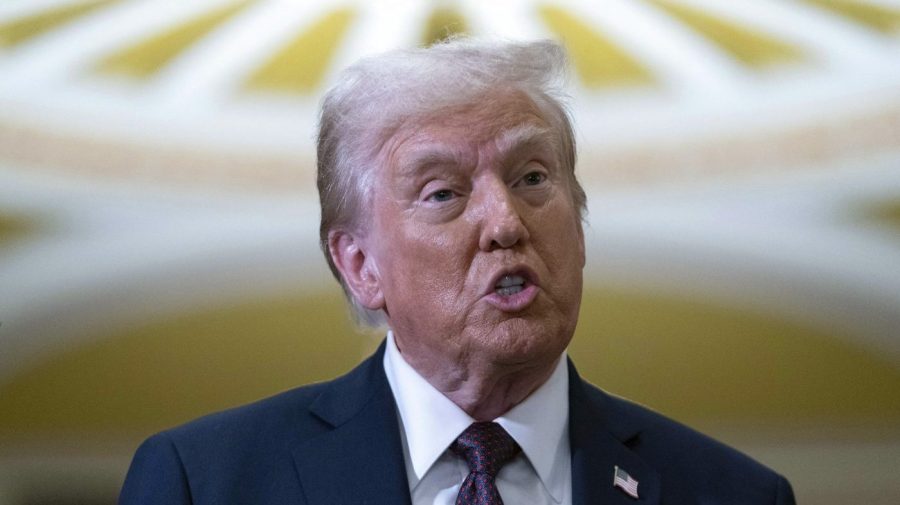
It’s no accident that the age of empires, and of imperialism, is over. Vladimir Putin is being taught that lesson in Ukraine after failing to have learned it in Chechnya. If his ideological comrade, President-elect Donald Trump, tries to enact his recent imperial musings, he will be taught that lesson in Greenland, Panama, Mexico, Canada and elsewhere.
Empires are costly and inefficient. Imperialism is costly and counterproductive. Both combine to generate the very forces that eventually bring about imperial downfall.
Empires are overly centralized political systems that prove to be ever-more inefficient with every expansionist step. The tribute that flows from the periphery to the center creates the illusion of greatness, but the cost of maintaining an ever-expanding bureaucracy — progressively prone to pursue its own interests by funneling incorrect information to the center — eventually exceeds whatever economic benefits empire brings.
Over-centralization thereby leads to poor decision-making and, thus, imperial decay — or the loosening of ties between center and periphery, a development that promotes nationalism and national liberation movements in the colonies.
Imperialism, meanwhile, is expensive and increasingly ineffective. Armies cost money. Initially, seized territories may help cover the costs, but the more the empire expands, the greater the costs of the military and the bureaucracy and the smaller the dividends from continued expansion. Of particular note is the fact that imperialism encourages local nationalisms and national-liberation struggles on the one hand and leads potential targets of imperialism to band together to resist — a move that also increases the costs of expansion.
Over time, with governmental inefficiency, growing expenditures and the unintended promotion of imperialism’s gravediggers — national-liberation movements and groups of allied states — empires ineluctably decay and disappear, sometimes with a bang, usually with a whimper.
Naturally, not all empires manifest the same dysfunction to the same degree. Nor do they all follow the same exact trajectory.
Imperial Rome nicely illustrates some of these tendencies. Expansion made republican government impractical, and after the civil wars of the First Century B.C., Augustus centralized government and expanded the bureaucracy in order to administer his growing domains. By the middle of the Third Century A.D., over-centralization spawned scores of short-lived emperors both elected and deposed by the self-assertive military, and eventually produced up to four competing emperors within an empire divided into two halves. Barbarians within and just beyond Rome’s borders took advantage of the growing chaos to assert themselves, oppose Rome, seize territory and settle within the empire itself.
The military costs of expansion were also prohibitive, especially after the empire reached its outer limits and could no longer rely on plunder to sustain the armed forces. Imperialism also encouraged barbarians, Persians and others to join in opposition and thereby push back the Romans and raise the costs of empire.
The Soviet Union was arguably closest to the ideal type of empire and imperialism. Totalitarian rule was the height of imperial over-centralization, fostering inefficiency and waste, while Soviet Russian imperialism encouraged national-liberation struggles in Ukraine, Central Asia, the Baltic states and Eastern Europe. Together, empire and imperialism spelled the end of the Soviet realm, especially after Mikhail Gorbachev tried to reduce the pathologies of both but succeeded only in destroying the USSR.
Putin’s modern imperialism was at first moderately successful. He crushed Chechnya, hung on to Transnistria, transformed Belarus into a vassal state and was well on the way to doing the same with Ukraine.
But then Putin overreached twice. First, he imagined that Viktor Yanukovych was firmly in control of Ukraine, an illusion disproven by the Revolution of Dignity in 2014. Then Putin attacked Ukraine in 2022, only to come head to head with a national-liberation movement aligned with the West. Putin is effectively experiencing a defeat that could even result in his downfall.
Trump should therefore know better than to speak of imperialism and wave a big stick. Unsurprisingly, Denmark, Greenland, Canada, Mexico and Panama have responded in classic nationalist form, daring Trump to try.
The president-elect will soon discover that his imperial goals are unattainable. Indeed, they would only promote nationalist opposition and compel the U.S. to employ its military — a costly and uncertain enterprise in a country led by a czar-like president with imperial ambitions and a struggling economy trying to deal with immigration, tariffs and severe budget cutbacks — or to back down, which would be a slap in Trump’s face.
Putin’s imperialism has failed to produce a new Russian empire — which doesn’t mean that he’ll stop with Ukraine. Quite the contrary, given his ambitions, Putin is sure to attempt to seize parts of Eastern Europe and Central Asia. But such overreach will only hasten failure and promote collapse.
Trump would do well to look at his good friend Putin’s record of abysmal failure and draw the appropriate conclusions. Empire and imperialism worked as long as nationalism was exceptional and asymmetric warfare had limited utility. Ukraine has shown that a deep commitment to a national identity, coupled with the asymmetric advantages that the ancient Greeks possessed when they defeated the Persians — quicker, more agile ships with deadly rams back then, drones today — can stop imperialism and end empires.
The alternative would be utter defeat and humiliation for Trump.
Alexander J. Motyl is a professor of political science at Rutgers University-Newark. A specialist on Ukraine, Russia and the USSR, and on nationalism, revolutions, empires and theory, he is the author of 10 books of nonfiction, as well as “Imperial Ends: The Decay, Collapse, and Revival of Empires” and “Why Empires Reemerge: Imperial Collapse and Imperial Revival in Comparative Perspective.”












